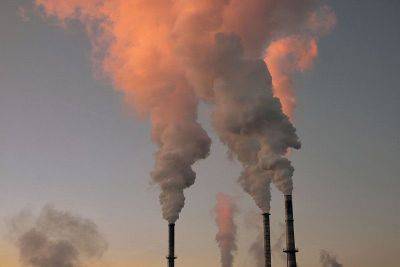Air pollution linked to 135 million premature deaths — study
SINGAPORE, Singapore — Pollution from man-made emissions and other sources like wildfires have been linked to around 135 million premature deaths worldwide between 1980 and 2020, a Singapore university said Monday.
Weather phenomena like El Nino and the Indian Ocean Dipole worsened the effects of these pollutants by intensifying their concentration in the air, Singapore's Nanyang Technological University (NTU) said, unveiling the results of a study led by its researchers.
The tiny particles called particulate matter 2.5, or "PM 2.5", are harmful to human health when inhaled because they are small enough to enter the bloodstream. They come from vehicle and industrial emissions as well as natural sources like fires and dust storms.
The fine particulate matter "was associated with approximately 135 million premature deaths globally" from 1980 to 2020, the university said in a statement on the study, published in the journal Environment International.
It found that people were dying younger than the average life expectancy from diseases or conditions that could have been treated or prevented, including stroke, heart and lung disease, and cancer.
Weather patterns increased the deaths by 14 percent, the study found.
Asia had the "highest number of premature deaths attributable to PM 2.5 pollution" at more than 98 million people, mostly in China and India, the university said.
Pakistan, Bangladesh, Indonesia and Japan also had significant numbers of premature deaths, ranging from 2 to 5 million people, it added.
The study is one of the most expansive to date on air quality and climate, using 40 years of data to give a big-picture view of the effects of particulate matter on health.
"Our findings show that changes in climate patterns can make air pollution worse," said Steve Yim, an associate professor at NTU's Asian School of the Environment, who led the study.
"When certain climate events happen, like El Nino, pollution levels can go up, which means more people might die prematurely because of PM 2.5 pollution," Yim added.
"This highlights the need to understand and account for these climate patterns when tackling air pollution to protect the health of the global







